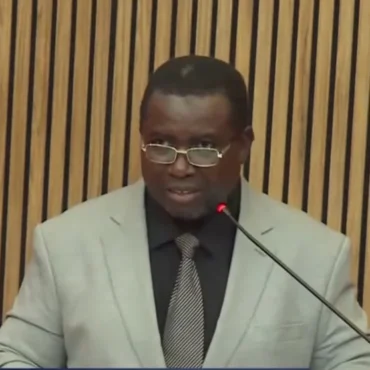The Chairman of the Federal Inland Revenue Service (FIRS), Dr. Zacch Adedeji, has revealed that nearly 70% of funds disbursed at monthly Federation Account Allocation Committee (FAAC) meetings now come from taxes collected by the agency. This milestone reflects a significant boost in Nigeria’s fiscal health, driven by enhanced tax collection efforts.
Speaking in an interview marking his two-year tenure, Dr. Adedeji emphasized that the increase in tax revenue has contributed to stronger fiscal stability across the country. Improved tax collections have empowered 30 Nigerian states to repay a staggering N1.85 trillion in debts over the past 18 months.
“Debt servicing costs, which once consumed 90% of government revenue, have now been reduced to about 50%. Additionally, our external reserves have grown, supported by this improved fiscal stability,” he explained.
Dr. Adedeji commended President Bola Tinubu’s administration for creating a tax-friendly environment that simplifies compliance. “The president has fulfilled his promise to ease tax compliance and remove obstacles faced by taxpayers,” he said.
He described the ongoing tax reforms as the most comprehensive since Nigeria’s independence, aimed at easing the burden on citizens while boosting government revenue. Key sectors such as food, education, shared transportation, and agriculture have been exempted from value-added tax (VAT), helping to protect vulnerable populations.
The impact of these reforms is evident: Nigeria’s tax-to-GDP ratio has climbed from 10% to 13.5% in just two years, with a target of 18% by 2027. In August alone, the federation account disbursed a record N2 trillion.
Acknowledging the challenges during the transition, Dr. Adedeji likened the process to “the pain of a woman in labour,” but assured that government interventions are easing the impact. These initiatives include the rollout of compressed natural gas (CNG) buses and crude-for-naira support for local refiners, both contributing to more stable fuel prices.
He outlined how the new consolidated tax law strengthens compliance by restructuring FIRS operations. Taxpayers are now categorized into small, medium, and large groups, with one-stop shops established to streamline filing and payments.
“We see ourselves as service providers to taxpayers, not just enforcers. When companies grow and succeed, we all benefit. Our role is to remove barriers, and the president’s new laws have made this possible,” Dr. Adedeji explained.
He also clarified the decision to rename the FIRS to the Nigeria Revenue Service (NRS), saying the term “federal” misled many to believe the agency only collects for the federal government. In fact, VAT collections—of which 90% goes to the states—are also managed by the agency.
Addressing concerns about the petrol surcharge included in the new tax law, Dr. Adedeji assured the public that it would not be automatically applied. “It will only take effect if a ministerial order is issued and published in the official gazette,” he said.
The consolidation of multiple tax laws into a single code, effective January, will simplify Nigeria’s tax system. This new framework reduces the number of tax types to just a few, exempts businesses with an annual turnover below N50 million from tax, and raises personal income tax thresholds to protect low-income earners.
On June 26, 2025, President Tinubu signed four major tax bills into law: the Nigeria Tax Act, Nigeria Tax Administration Act, Nigeria Revenue Service Establishment Act, and Joint Revenue Board Establishment Act. These laws aim to broaden the tax base, enhance compliance, and improve transparency across all government levels.
Dr. Adedeji linked Nigeria’s fiscal improvements to broader economic reforms under President Tinubu, including the removal of fuel subsidies and unification of exchange rates. “The health of the federation account has blossomed greatly, with no bogus subsidy claims draining resources,” he noted.






Post comments (0)